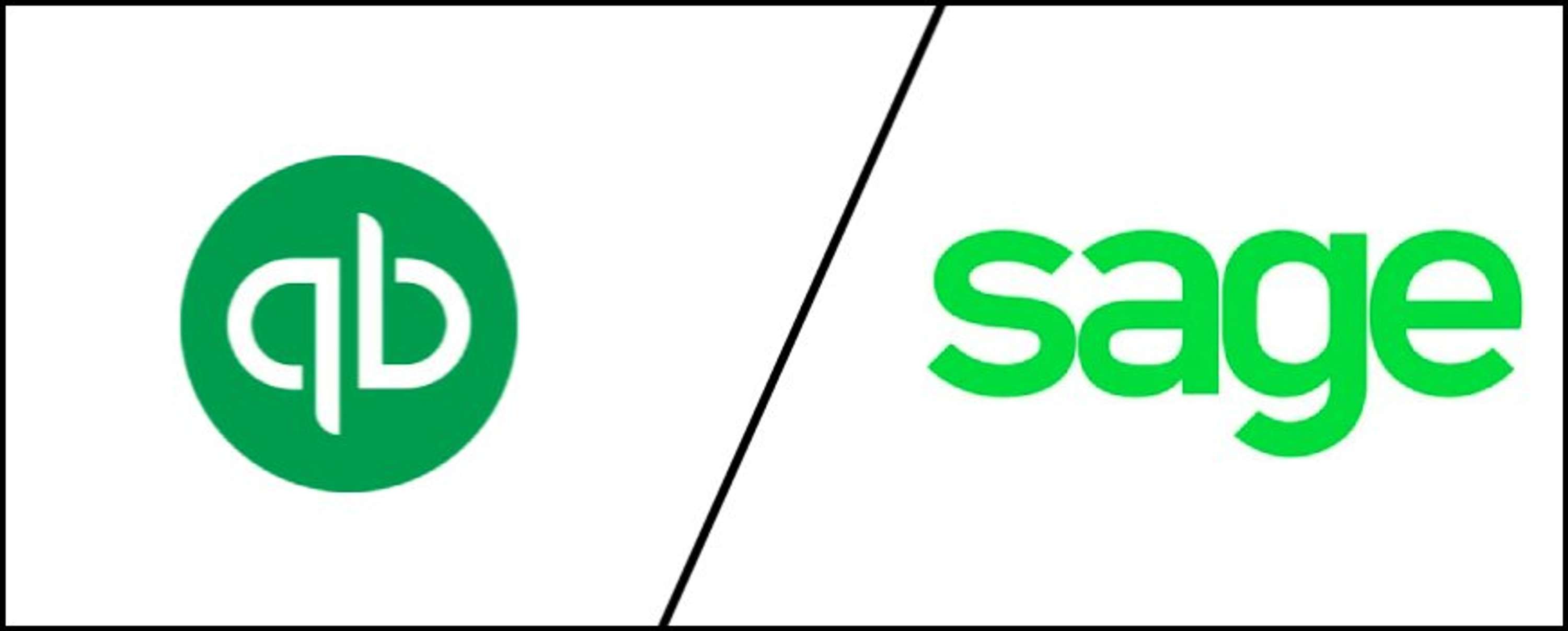Are you a business owner looking for the perfect accounting software to streamline your financial processes? Look no further, as we dive into the ultimate showdown between two industry-leading options: QuickBooks vs Sage. These powerhouse platforms have revolutionized small and medium-sized businesses around the world, offering intuitive features and robust capabilities. In this blog post, we'll dissect the differences between QuickBooks and Sage, explore their unique features, compare their pricing models, and help you determine which one is best suited for your specific business needs. So let's jump right in and discover which software reigns supreme in the battle of QuickBooks vs Sage!
Comparing QuickBooks vs Sage
When it comes to comparing QuickBooks vs Sage, both software options have their own strengths and unique features. QuickBooks is known for its user-friendly interface and ease of use. It offers a wide range of accounting tools and features that cater specifically to small businesses. With QuickBooks, you can easily manage your financial transactions, generate invoices, track expenses, and even handle payroll tasks seamlessly.
On the other hand, Sage is renowned for its robust capabilities and comprehensive suite of business management solutions. It provides an all-in-one platform that combines accounting features with inventory management, project tracking, customer relationship management (CRM), and more. This makes it ideal for medium-sized businesses looking for a unified system to streamline their operations.
In terms of scalability, QuickBooks tends to be more suitable for smaller companies with simpler needs. However, as your business grows in size or complexity, Sage offers more advanced functionalities that can accommodate expanding requirements.
Another factor to consider when comparing QuickBooks vs Sage is integration capability. Both platforms offer integrations with third-party applications such as payment processors or e-commerce platforms. However, QuickBooks has a larger ecosystem of integrations available compared to Sage.
The choice between QuickBooks and Sage will depend on your specific business needs and goals. Evaluating factors like company size, functionality requirements, and budget constraints are crucial in making an informed decision on which software solution aligns best with your organization's objectives.
Stay tuned as we delve deeper into the individual features offered by both QuickBooks and Sage in the upcoming sections!
Features QuickBooks vs Sage
When it comes to comparing the features of QuickBooks vs Sage, there are some distinct differences that can help businesses determine which software is best suited for their needs.
QuickBooks offers a user-friendly interface with a straightforward setup process. It provides features like invoicing, expense tracking, inventory management, and financial reporting. QuickBooks also has a mobile app that allows users to access their accounts on the go.
On the other hand, Sage offers more advanced capabilities for businesses with complex accounting requirements. It has robust features for budgeting, forecasting, job costing, and multi-currency transactions. Sage also provides industry-specific solutions such as construction management or manufacturing.
Both QuickBooks and Sage offer integrations with other software applications to enhance functionality. However, QuickBooks has a wider range of third-party integrations available compared to Sage.
In terms of scalability, QuickBooks is better suited for small to medium-sized businesses while Sage can accommodate larger organizations with its enterprise-level solutions.
Choosing between QuickBooks and Sage depends on the specific needs of your business. Consider factors like size, complexity of accounting processes required features before making a decision.
Pricing QuickBooks vs Sage
Pricing is an important factor to consider when choosing between QuickBooks vs Sage. Both software options have different pricing structures that cater to the needs of various businesses.
QuickBooks offers several plans, including Simple Start, Essentials, Plus, and Advanced. The pricing starts at $25 per month for their entry-level plan and goes up to $150 per month for their most advanced plan. This tiered pricing system allows businesses to choose a plan that best suits their budget and requirements.
On the other hand, Sage also offers multiple plans such as Sage Business Cloud Accounting Start, Accounting Standard, and Accounting Premium. Pricing for Sage's plans ranges from $10 per month for their basic plan to $45 per month for their premium offering. These options enable businesses of all sizes to find a suitable package within their budget.
Aside from the monthly subscription fees, it's worth noting that both Sage Accounting vs QuickBooks may charge additional fees for certain features or add-ons. It's essential to carefully review each software's pricing details before making a decision. The choice between QuickBooks vz Sage will depend on your business's specific needs regarding functionality, scalability, ease of use, customer support provided by each company along with your financial resources available to invest in accounting software.
What Businesses Are Suitable To Use Sage And QuickBooks?
Sage and QuickBooks are both popular accounting software options, but they have some key differences that make them better suited for certain types of businesses.
QuickBooks is known for its user-friendly interface and robust features, making it a great choice for small to medium-sized businesses. It offers a wide range of functionalities including invoicing, payroll management, inventory tracking, and financial reporting. This makes it ideal for service-based businesses such as consulting firms or freelancers who need an all-in-one solution.
On the other hand, Sage is more suitable for larger companies with complex accounting needs. It provides advanced features like multi-currency support and in-depth analytics that can help businesses manage multiple branches or international operations. Additionally, Sage offers industry-specific versions tailored to sectors such as manufacturing, construction, or nonprofit organizations.
The choice between Sage vs QuickBooksdepends on your business's size and requirements. If you're a small business owner looking for simplicity and ease of use, QuickBooks may be the better option. However, if you run a larger organization with specialized accounting needs or require industry-specific functionality, Sage might be the right fit. Conclusion
Both QuickBooks vs Sage are popular accounting software options for businesses of all sizes. Each platform offers unique features and benefits that cater to different business needs.
QuickBooks, with its user-friendly interface and extensive range of features, is well-suited for small to medium-sized businesses that prioritize ease of use and accessibility. It provides a wide variety of tools for managing finances, invoicing clients, tracking expenses, and generating reports. Additionally, QuickBooks offers seamless integration with other applications such as payroll services and e-commerce platforms.
On the other hand, Sage is often preferred by larger organizations or those in complex industries due to its robust functionality and scalability. With advanced inventory management capabilities, multi-currency support, project accounting features, and industry-specific solutions available across various sectors like manufacturing or construction - Sage is ideal for companies requiring more specialized financial management tools.
When it comes to pricing, both QuickBooks vs Sage offer different plans tailored to meet the varying needs of businesses at different stages. QuickBooks has affordable monthly subscription options starting from basic plans suitable for sole proprietors up to more comprehensive packages designed for growing enterprises. Similarly, Sage also provides flexible pricing structures depending on business requirements. Ultimately the choice between QuickBooks vs Sage will depend on your specific business needs including size, industry focus, and required functionalities. While QuickBooks may be better suited for small-to-medium sized businesses, Sage could be a better fit for larger companies or those needing industry-specific solutions.
It's important to evaluate your company's requirements before making a decision. Both platforms have their strengths but ultimately, it's about selecting the right one that aligns with your organization's goals, strategies, and budget.
Regardless of which software you choose, the implementation of an effective accounting system can greatly streamline your financial processes, enabling you to focus on growing your business rather than getting bogged down in paperwork.


